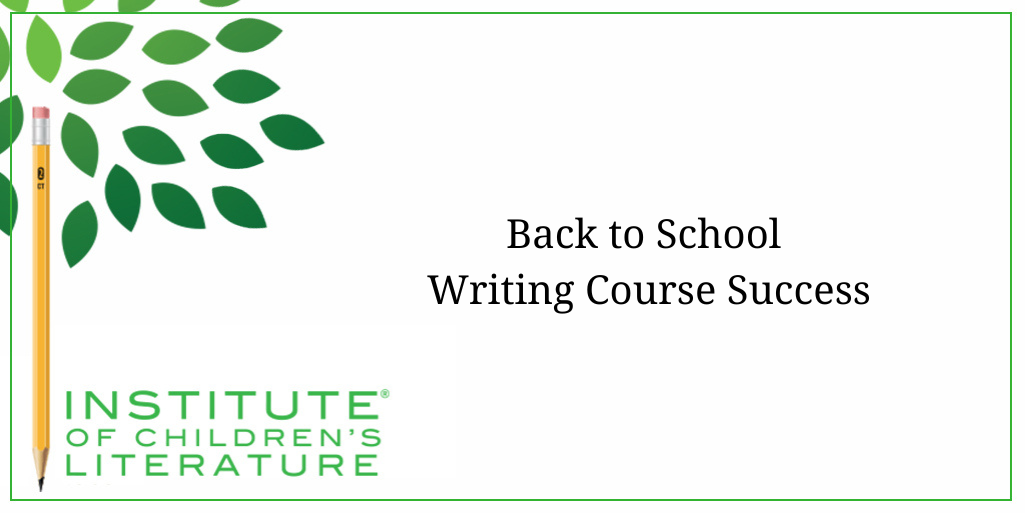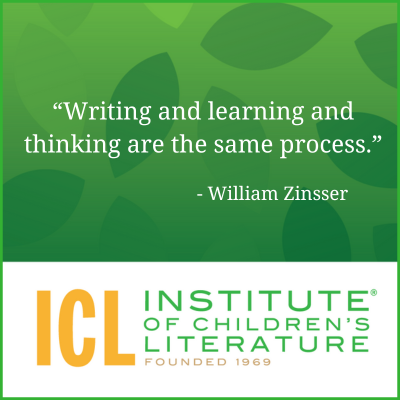
5 Ways Writers Can Prep for 2025 Goal Setting
Before we roll on to the new writing year, let’s harness our optimism for the blank slate before us and prepare for our 2025 Goal Setting just for writers.

As we see the end of summer looming on the horizon, many of us are preparing our children to go back to school. For some, it’s a welcome change to jump back into books and words and learning. For others, school is challenging. But for all, school is a necessary part of growing toward a dream. And that doesn’t just work for children. As a writer, it might be an excellent idea to try a little back-to-school of our own. Options abound these days for writers who want to shorten the time between wanting to write and having the skills and knowledge to succeed in the endeavor.

No matter how you intend to learn and grow, there are things you’re going to need if you’re planning a little back-to-school learning of your own: time, place, tools, and attitude.
“The bad news is time flies. The good news is you’re the pilot.” Michael Altshuler
Anyone undertaking the acquisition of new skills needs to understand that the process of learning, practicing, polishing, and perfecting takes time. When undertaking any class experience, there is no greater thing you can invest than sufficient time to ensure success. If you’re hurried and rushed, the writing you produce won’t be your best work. I know whenever I’ve written under crippling time pressure, I had to accept that the end result wouldn’t be great. I remember in college when I turned in a paper and my instructor wrote, “What time last night did you write this?” Sadly, he had it exactly right. I’d written it at 3am, and it was terrible. The worst thing was that I knew I could do well, but I’d not given myself enough time to manage it.
Rushed writing, especially in a situation where you’re producing something that you will show someone else (like an instructor, for example) practically ensures you’ll get less than completely helpful feedback because you’ll be getting corrections for mistakes you never would have made if you’d only given yourself adequate time. Because of this, time is something you must not skimp on when planning your back-to-school goals. You need time to read writing course materials, time to do practice drills, and time to create materials to submit for evaluation. So often it can be tempting to skip the first two and allot time only for the third, but by missing the improvement and learning available when you read carefully and practice skill-building activities you’re also missing the huge dividends when it comes time to write something that matters, something to be evaluated.
One of the best ways to feel like learning is important is to treat it as such. And that can include creating a learning nook for yourself where you have your materials and your computer in easy reach. People find this perfect learning nook in lots of ways. I’ve sometimes done research using my phone when in a car stuck in traffic. I’ve had writing students who did all of their work at the dining room table, which brought back nostalgia from the days when they were kids. I’ve had writing students who sat cross-legged on the bed with their computer in their lap or in front of them. The right place for you to do your learning is going to be personal to you.

Wherever you set up your study materials, you’ll find it mentally helpful to think of it as your learning space. And then protect it. Discourage other people from assuming that when you are sitting down, it is an invitation to start a conversation. This is your workspace, and you need to be working. It’s possible you’ll find there really is nowhere at home where you can hide away to work. For some, the best workspace is at your local public library (which is sure to have a quiet space to work) or at a coffee shop (less quiet, but most folks won’t be talking to you, so that’s something.) Don’t give up in frustration if it takes time to find the perfect study spot. Sometimes you have to be creative, but if you’re committed to finding it, it’s out there.
Consider arranging the work things you will need ahead of your study time. If you’re reading a book for the class, be prepared to take notes. This might involve your computer, but many writers like taking notes longhand. You might want to consider taking notes this way. Research shows that the process of writing longhand helps information sink into your brain better and be accessible to you longer. In that case, you’ll want a dedicated notebook and ink pens that work for you. As a left-handed writer, I definitely have favorite ink pens for taking handwritten notes and no one touches my pens.

Another valuable tool to keep close at hand is a style and grammar guide. I have bought many of these and I read them cover to cover. Yeah, weird I know, but it means that I am rarely stumped by a grammar issue. And when I get editorial feedback that uses terms like “progressive tense” or “passive voice,” I know what they mean.
Some of us didn’t have the best time during our school years, and we can be resistant to school settings. Others don’t enjoy having to admit to not knowing something. Still others can think of learning as a grind, a chore that you force yourself to do. All of these attitudes can make it difficult to improve your writing, and especially difficult to improve through a writing course.
Letting go of past experiences and greeting new learning with interest and enthusiasm will make everything about learning better. Keep in mind that you won’t be learning about things that don’t interest you—you’ll be learning about writing, an area you want to excel. Think about the times you’ve voluntarily learned a new skill and the excitement you found in that, Then tap into that attitude for this experience.
Learning about writing is learning about how to think, how to create, and how to communicate. It boosts areas in your life you never expected. So be your own cheerleading squad before you jump into each lesson, so you can bring energy into the experience instead of reluctance. The dividends you reap in learning and enjoyment will be well worth it.
So, if you are thinking of some back-to-school learning of your own, good on ya. Let’s go!
With over 100 books in publication, Jan Fields writes both chapter books for children and mystery novels for adults. She’s also known for a variety of experiences teaching writing, from one session SCBWI events to lengthier Highlights Foundation workshops to these blog posts for the Institute of Children’s Literature. As a former ICL instructor, Jan enjoys equipping writers for success in whatever way she can.

Before we roll on to the new writing year, let’s harness our optimism for the blank slate before us and prepare for our 2025 Goal Setting just for writers.

Writers can be thin-skinned when it comes to getting feedback on their work. Let’s look at 4 ways to positively deal with constructive criticism!

Rejection is part of the territory when it comes to being a writer. Today we offer reflection for writers to help redirect your efforts after a rejection.
1000 N. West Street #1200, Wilmington, DE 19801
© 2024 Direct Learning Systems, Inc. All rights reserved.
1000 N. West Street #1200, Wilmington, DE 19801
© 2024 Direct Learning Systems, Inc. All rights reserved.
1000 N. West Street #1200, Wilmington, DE 19801
© 2024 Direct Learning Systems, Inc. All rights reserved.
1000 N. West Street #1200, Wilmington, DE 19801
© 2025 Direct Learning Systems, Inc. All rights reserved.
1000 N. West Street #1200, Wilmington, DE 19801
©2025 Direct Learning Systems, Inc. All rights reserved. Privacy Policy.
2 Comments